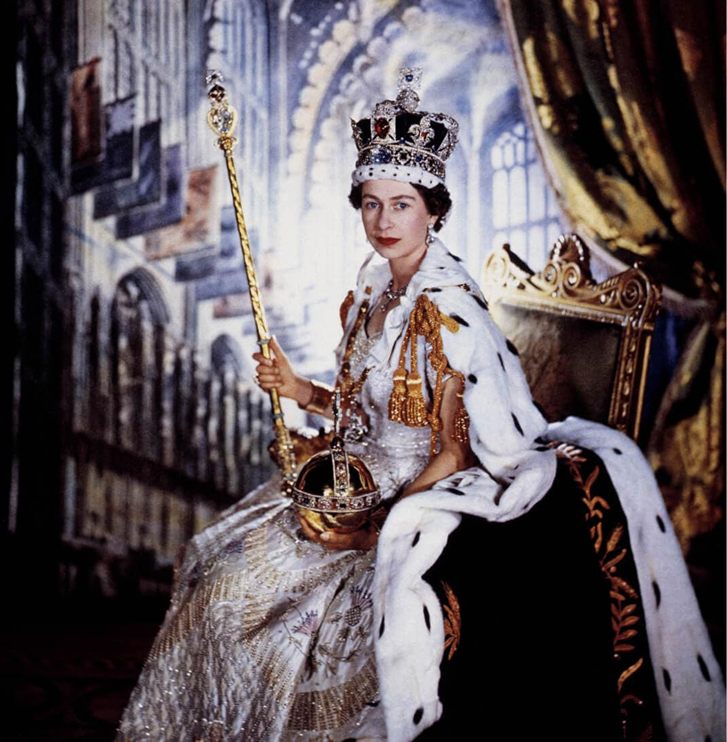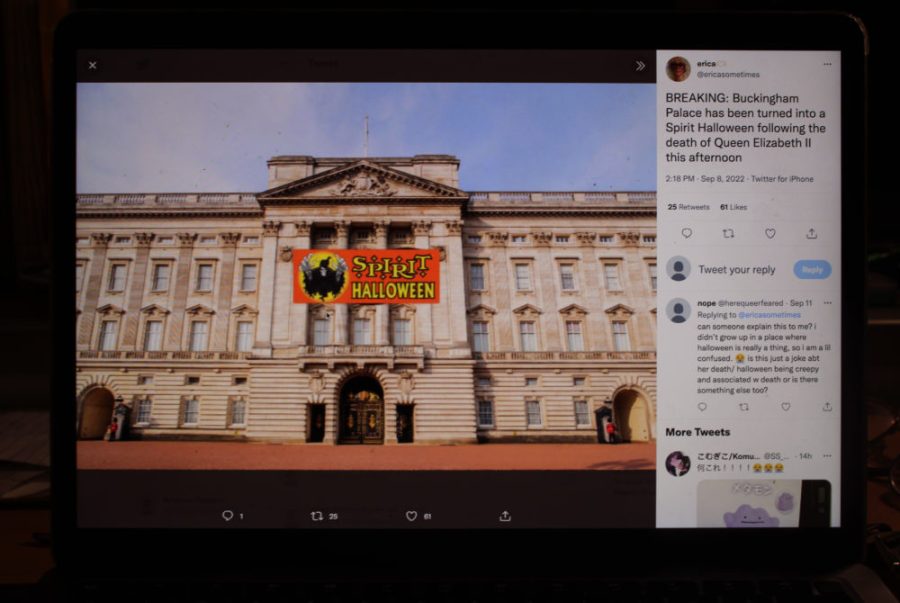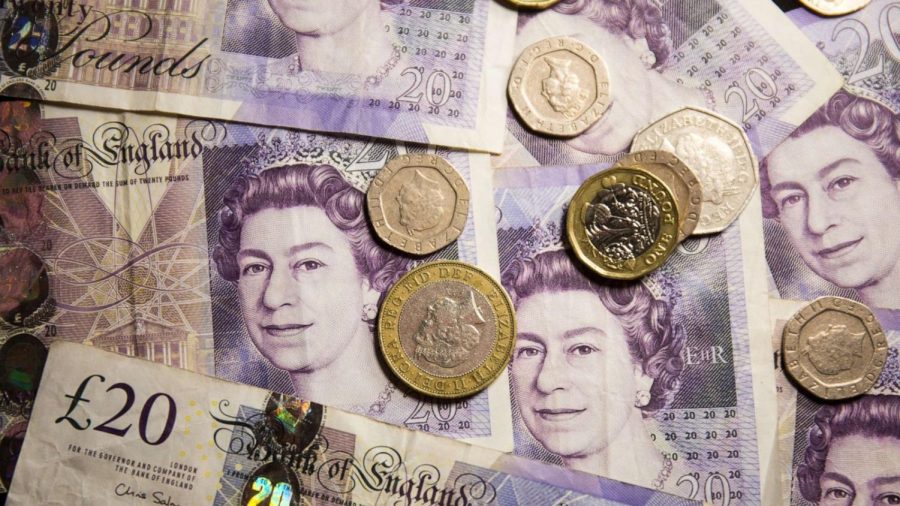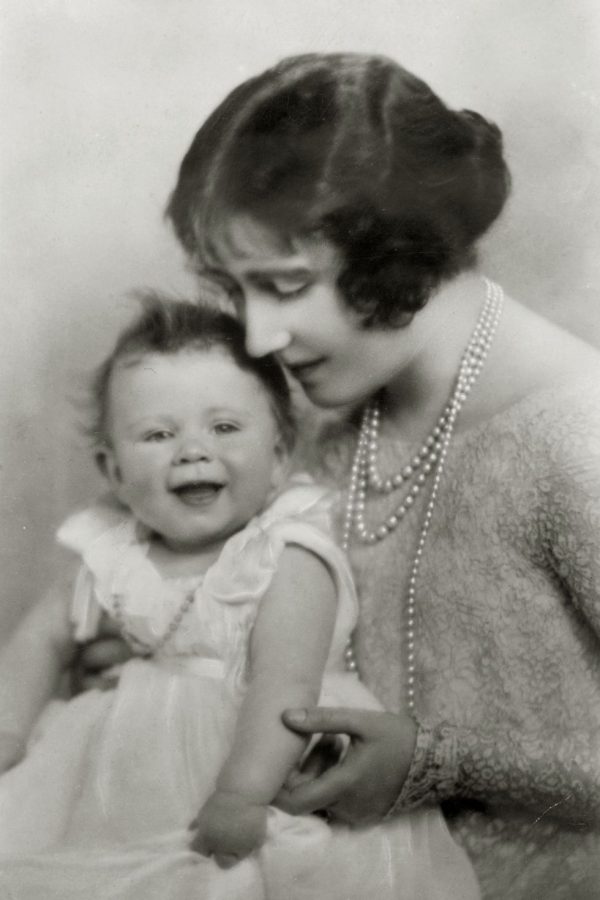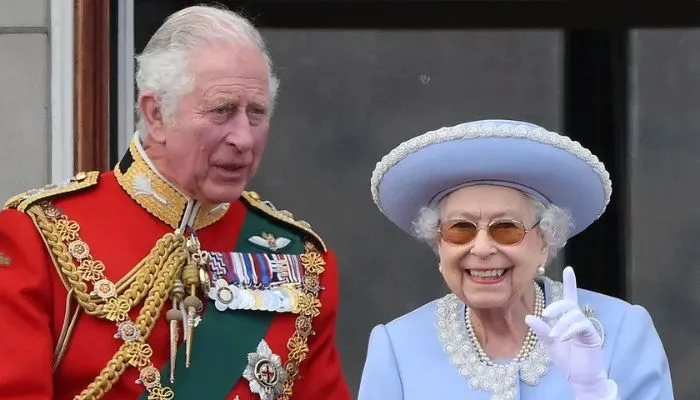Queen Elizabeth II dies, leaving behind questions, confusion and condemnation
October 21, 2022
On September 8th, 2022, Elizabeth Alexandra Mary Windsor, officially Elizabeth II, by the Grace of God, of the United Kingdom of Great Britain and Northern Ireland and of her other realms and territories Queen, Head of the Commonwealth, Defender of the Faith, died. Her age marked her as the longest British monarch to have ever served, and masses of commiserations and mourning followed in her wake. But, more importantly, the death of such a well known figure signals new issues and change for the United Kingdom and the world.
The queen’s death leaves behind a mixed legacy
An ode to the lighthearted reaction of the younger generations. (Courtesy of Krishna Rajpara/The GW Hatchet)
From the streets of London to the governments of the world, the death of Queen Elizabeth II was accompanied by one of the largest, and most varied, outcries of reaction globally. No world leader with any significant connection to Britain was there that did not address the aged monarch’s death. Condolences, prayers and tributes to her long-spanning career were the order of the day. Even traditional geopolitical enemies of the United Kingdom sent their respects to the royal. “I wish you courage and resilience in the face of this difficult, irreparable loss. May I ask you to pass on sincere condolences and support to members of the royal family and the entire people of Great Britain.” said Vladimir Putin, President of the Russian Federation in response to the queen’s death. Other countries, such as Trinidad and Tobago, an ex-colony of the world’s largest empire (ruled for decades by Queen Elizabeth) had a more limited response with more of an ode to the past than the present. “Though Trinidad and Tobago gained its Independence and later became a Republic, this country recognizes the lasting legacy of Her Majesty,” said the Prime Minister of Trinidad and Tobago Keith Rowley. Albeit with altering tones, the reaction of political figures around the world was cordial and respectful to the royal family.
However, this is not the case with the rest of the world. In some parts of the globe, commemoration became very liberally mixed with condemnation. In Ireland, only recently at peace after centuries of embroiling conflict with England, a wild display of joy at the queen’s death erupted at the Tallaght Stadium in the midst of a soccer game. Just moments after the death, fans began chanting “Lizzy’s in a box,” with the jeer and might of centuries of oppression and bloodshed. Indeed, Ireland has perhaps suffered more than any other country at the hands of Britain. Even today, the population of Ireland is somehow lower than it was two centuries ago in the 1820s. This is a result of famine and war, in which Britain played a major role, leading to an exodus of millions from their ancestral homeland. More Irish angst was captured in a now viral TikTok featuring an Irish tap dancing group dancing to ‘Another One Bites the Dust’ in front of Buckingham Palace, supposedly after the queen’s death. The video garnered a tremendous concentration of criticism against the monarchy and its legacy. It was later revealed that the video was taken months before the queen’s death, but the sentiments aroused around the TikTok video remain much in force.
Nor are the Irish alone. In the political sphere, a chorus of anti-monarchical voices have risen directly following the queen’s death. Some of the most poignant voices come from the governments of Belize, Jamaica, and the Bahamas. These countries have frequently railed against the role played by the British royal family in colonization and sought official apologies from the family. Although some members of the royal family have acquiesced, Queen Elizabeth never did.
Age seemed to also play a role in reactions to the queen’s death. While older, traditionally more conservative people tended to mourn over Elizabeth’s loss, the younger generation seems to have instead chosen to create memes and casually acknowledge her death.
Just like the mixed recognition of her death, Elizabeth II leaves behind a complicated legacy as the crown ruler of the United Kingdom. On one hand, she was a charming, witty woman who played a crucial role in the forming and maintaining of the post WW2 world order and remained a steadfast force in international politics. On the other hand, she was a supporter of British imperialist policy, and not a word of public apology addressing her empire’s rampant colonization and exploitation of ex-imperial holdings left her mouth during her time as queen. Whether for her cruelty or her benevolence, however, the world will remember her.
Major world events during the reign of Elizabeth II
A comprehensive timeline of major events throughout the reign of Queen Elizabeth II
Britain’s economy endangered by the passing of the queen
British pounds bearing the face of Queen Elizabeth II. All must be recirculated with the face of the newly minted King Charles. (Courtesy of ABC News)
The Queen has long provided a sense of continuity to many United Kingdom citizens. She reigned while the country was still an empire, and continued to reign as it gradually transformed into a much smaller, diverse nation. However, the Queen did not just sit back and watch the nation develop. Notably, she served the nation by contributing to its economy and culture.
United Kingdom companies often utilize the Queen’s prominent name to increase their sales and reach more international markets. Millions of people know her namesake, and according to Warwick Business School (WBS), “when Chinese consumers were asked what words they associate with Britain 25.1 per cent instantly thought of her.”
Companies could use that data to their advantage, and WBS reports that they did: “Not only does the Queen play a large part in the annual £5 billion that tourists bring to the UK, but her marketability contributes to the country’s £625 billion annual exports.”
These companies also sought to seek an endorsement from the Queen, referred to as the Royal Warrant. The Warrant, which hundreds of companies possess, mark different goods and services that the Queen utilizes. It can help a company better market a product and become more successful.
Moreover, the royal collection and the crown’s estate generate tens of millions in revenue money. For example, according to the Hindustan Times, “the house of Windsor helps earn hundreds of millions for Britain’s economy.” Hindustan Times writes that “royal tourist destinations like the Buckingham Palace and the Queen’s Gallery, which she created, also generate significant tourism revenue for the UK.”
During her reign, the Queen helped improve these places, among others. The Architectural Digest reports that in 2018, Buckingham Palace started to undergo $500 million worth of changes. Though the Queen’s changes to these buildings are in some ways smaller than those of her predecessors, the Digest also reports that they “continue to bedazzle camera-wielding visitors” and helps to connect citizens outside of the country to the world of the monarchy and the culture of the United Kingdom.
There are other impacts on the smaller, cultural level too, journalist and royals researcher Emily Stedman told Global News. “It’s her face on the plates and mugs lining every British gift shop in London”. That could harm the British economy. Shops will have to create new royalty memorabilia.
Stedman also notes that the Queen is on Canada’s green $20 bill. However, “there’s no legal imperative forcing Canada to now put King Charles III’s face on the banknote instead of Queen Elizabeth II.”
The Queen’s death temporarily disrupted the royal family’s overall contribution to the United Kingdom economy. However, it is likely that King Charles III will re-stimulate it, and before you know it, as Stedman suggests, royal gift shops and external merchandise stores will be selling content bearing his face, rather than Elizabeth’s.
The late Queen Elizabeth’s contributions to the economy and culture of the United Kingdom are largely intertwined. The royalty is part of the country’s culture, while their buildings, museums, and collections bring in millions.
How well do you know your Elizabeth II trivia?
Take this seven question quick quiz to figure out just how much of a ‘royal’ cultured individual you are. From dates to names to history, all of it is right here!
The Veneer Falls: The Many Controversies of Elizabeth II

British soldiers and Mau Mau prisoners in the the Kenya Emergency during the 1950s. (Courtesy of The Guardian)
Although some may see Queen Elizabeth II’s rule as a golden age, the existence of her controversies involving other members of the royal family, particularly Princess Diana and the Duchess Meghan Markle of Sussex, is undeniable. Beyond just her familial conflicts, Queen Elizabeth II ruled during a period of the lasting effects of British colonialism rising in the world, forever tainting all of her reign’s seemingly prosperous aspects. To truly understand the late queen, one must recognize both her seemingly minor and exceedingly detrimental controversies.
In truth, Queen Elizabeth II’s relationship with Princess Diana was one of the things that first exposed the former in a questionable light. Initially, the two appeared compatible: Diana was a lady of a well-regarded family, and the queen viewed this as an indication that Diana could marry her son, Prince Charles.
Appearances can only last so long, though.
Diana was more vocal than any member of the royal family, likely ever, and this drew a sharp divide between her and the queen. Allegedly, members of the royal family offered little help to the princess as she spoke more and more about her crumbling marriage with Prince Charles, and many Brits assumed Queen Elizabeth II was not providing adequate help. Eventually, Queen Elizabeth II herself pushed for the prince and princess’s divorce. When Princess Diana died in 1997, just a year after the divorce, questions soon arose regarding the Queen’s potential involvement in the horrific incident, though no facts came out of the matter.
Even today, the strangeness (an understatement) of Queen Elizabeth II’s relationships with other royal women still lasts. In 2020, Prince Harry and Duchess Meghan Markle left their royal duties, and the general public wondered about the queen’s involvement in the matter, an incident reminiscent of the late 90s. Later, Oprah interviewed Markle as she revealed the reasoning for their departure: when racist British tabloids attacked Markle, leaving her with suicidal thoughts, the royal family provided insufficient help, and one member even feared the possible darkness of the Duke and Duchess’s son’s skin. Again, many suspected Queen Elizabeth II of the terrible comments, though other royals had accusations thrown at them as well.
Both Queen Elizabeth II’s allegedly dreadful relationships with Princess Diana and Meghan Markle had their ups and downs, but her support for (or at least lack of disapproval of) British colonialism was solely awful.
The Mau Mau rebellion in colonial Kenya during the 1900s exemplifies this, for instance. The more Mau Mau combatants fought, the more stationed British colonists suppressed the fight with violence. The British created camps where they tortured and killed Kenyan people suspected of joining the Mau Mau. Queen Elizabeth II did not command this, butshe did not try to stop it.
Technically, during her reign, British colonialism ended; many British colonies fought for their independence and won, Kenya included. However, Britain left them in chaos as they depended heavily on the country for resources, and the queen never acknowledged this.
“Decolonization was supposed to force the acknowledgment of wrong,” said Priya Satia, a Stanford University professor, for TIME. “That never came because it was always masked by the continuity of the queen.”
By the time of her coronation, the queen held little political power over Parliament, so she never was the one to decide whether Britain should provide help for the former colonies. If she truly wanted to, though, as a greatly influential figure, she could have spoken up about the issue and prompted some change. She never did. And so, she remained a figurehead of British imperialism, even if that was never her direct intention. Her wearing of the stolen crown jewels did not help her case in eliminating conversation about her role in British colonialism.
Whether or not one chooses to remember Queen Elizabeth II in a beaming light or a gloomy shadow, one must always recall her impact on fellow women and former British colonies around the world. In doing so, the truth about her reign can finally be revealed.
Looking at the queen through the ages
British monarchy teeters as King Charles III ascends the throne
King Charles III, formerly known as Prince of Wales, has generated public scrutiny for years. As popularity for the British monarchy continues to decline, his controversies exacerbate pre-existing discontent with the institution in general. Looking forward, Britain must weigh the ever-changing balance between tradition and modernity.
According to YouGov, just 42% of the British population have a positive view of Charles. One of his longest-standing controversies involves his marriage with Princess Diana. After the public caught wind of his affair with Camilla Bowles, his favorability steadily decreased. Since then, his scandals have only gotten more serious. According to the Sunday Times, in 2013 Charles accepted over one million dollars in donation money from Osama Bin Laden. He denied accepting these funds with this awareness, but the public perception had already been damaged.
He also faces allegations of racism. In the book Brothers and Wives: Inside the Private Lives of William, Kate, Harry and Meghan by Christopher Andersen, Charles is accused of remarking, “what do you think their children’s complexion might be?” This in reference to Meghan Markle’s pregnancy, as she is part black. Charles denies these claims, but the public’s admiration for Markle has already influenced most Britons. Her social favorability, paired with the already deep-rooted history of racism within the English monarchy, combined to further weaken his standing.
Others are discontented by his continued push for political power. In 2015, news broke that he had been receiving confidential government documents for decades. He also sent what are known as the “black spider memos”, urging political leaders through private messages to carry out policies he was in favor of. In several cases, he even met with these leaders in person to discuss topics unknown to the public.
For many Britons, Charles represents the physical embodiment of the flaws of monarchy. With allegations of racism, questionable political ties, and a perceived effort for increased power, he exacerbates a growing trend of dissatisfaction. According to YouGov, 62% of Britons want to uphold the monarchy. In 2012, however, this percentage stood at 75%. As younger generations grow older and England adapts to life post-Queen Elizabeth II, it will be interesting to see how these numbers change. But for the foreseeable future, England will continue to operate under their twelve hundred year monarchy.
Which Royal Family Member Are You?
